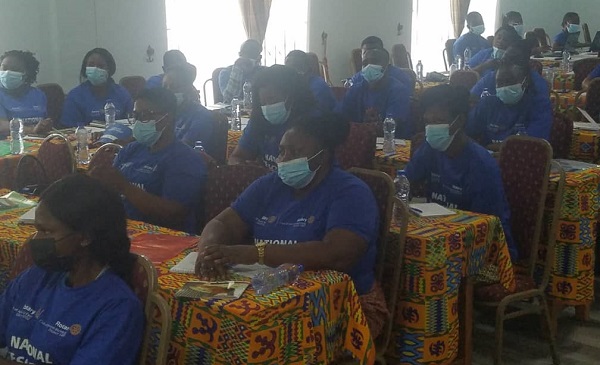
Nearly 230,000 people in country blind - GHS
About 230,000 people of all ages in the country are blind, many of the cases from conditions that started from infancy.
The blindness prevalence rate in Ghana is 0.74 per cent.
Known in medical terms as Retinoblastoma, the condition is a malignant tumor of the retina that develops during childhood.
It is severer among children, especially those in rural areas, due to either lack of funds for medical care or access to appropriate health facilities to detect the disease early for treatment.
Other causes are abnormalities in chromosomes - thread-like structures located inside human cells that also contain a persons DNA.
To encourage early detection and treatment, the government has given approval to the National Health Insurance Scheme (NHIS) to cover the treatment of Retinoblastoma, a cancer of the eye, which also kills many children.
Event
The Head of Eye Care at the Ghana Health Service (GHS), Dr James Addy, disclosed this when speaking at a Rotary outreach programme in Kumasi last Saturday for the training of midwives and nurses in the Ashanti Region on how to improve the survival rate of children with Retinoblastoma, since it is treatable, manageable and curable when detected early.
He said the Rotary Club of La East, Accra, in partnership with the GHS, the Korle Bu Teaching Hospital and the University of Ghana Medical School (UGMS), had already trained many midwives and community health nurses across the country in the early detection of Retinoblastoma.
The support formed part of Rotary's contribution to improving eye care in the country, he said.
Dr Addy called for more collaboration between stakeholders and the government to help nip the disease in the bud.
Death rate
An associate professor at the UGMS, who is also a paediatric eye specialist at the Korle Bu Teaching Hospital, Professor Vera Adobea Assumang, said more than half of the children who contracted Retinoblastoma died every year due to lack of support.
“About 60 children contract Retinoblastoma every year and most of them are reported late, which makes it difficult to save sight,” she added.
Prof. Assumang said some of the causes of the disease were preventable and advised parents not to hesitate in reporting such cases to health facilities for early detection and treatment.
